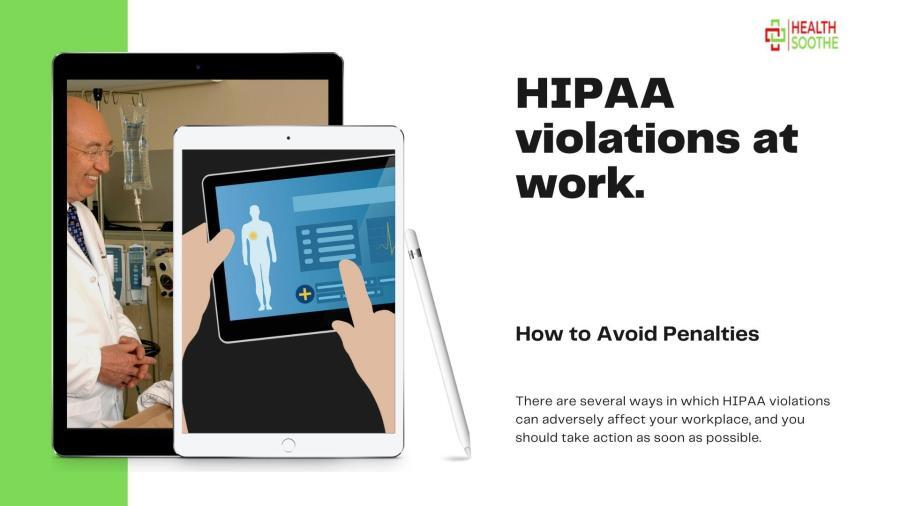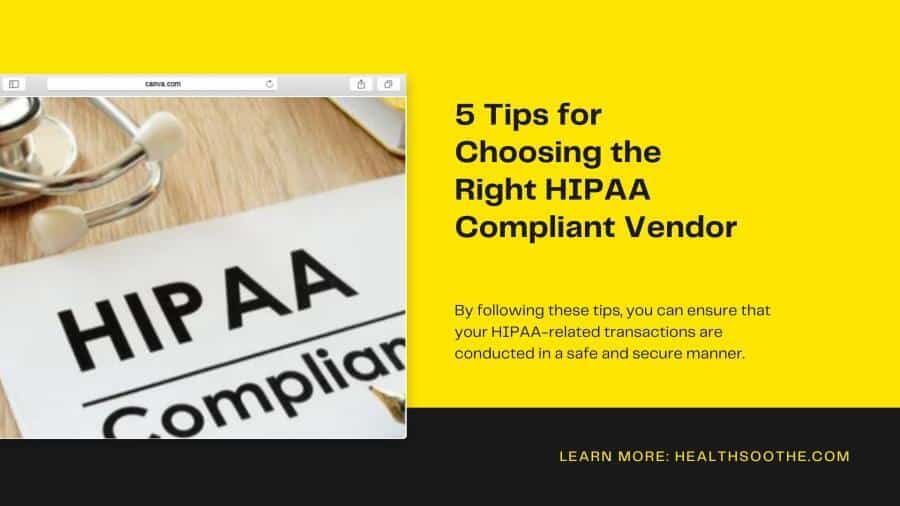Suppose for a moment that you have the most wonderful colleagues and patients worldwide at your workplace. There is a risk that the file containing a patient's information may be leaked to the public if someone leaks it.
There are several ways in which HIPAA violations can adversely affect your workplace, and you should take action as soon as possible. Therefore, you should be aware of the penalties associated with HIPAA violations so you can prepare for and avoid potential problems.
You can avoid HIPAA penalties if you know how to do it.
What is HIPAA?
The Healthcare Insurance Portability and Accountability Act of 1996 (HIPAA) mandated the Department of Health and Human Services (HHS) and its staff, which is managed by the Office of Civil Rights (OCR), to establish national standards for healthcare information. As time has passed, HIPAA now incorporates the Privacy Rule, the Security Rule Enforcement Rule, and the Breach Notification Rule.
A brief HIPAA overview is that the four HIPAA privacy rules set strict guidelines regarding privacy and security control for protected health information (PHI). PHI is defined in the context of "individually identified health data" PHI, also known as electronically stored PHI (ePHI), is any information about a person's demographics such as medical background, lab or test results, as well as mental health information, insurance information, or any other information that identify a patient.
Who Needs to Worry About HIPAA Compliance?
The simple answer is that healthcare professionals must adhere to HIPAA regulations. Any person handling PHI should be granted the proper authorization and committed to complete HIPAA compliance. The primary goal of HIPAA is to secure personally identifiable health information and to be the norm for healthcare professionals.
What Qualifies as a HIPAA Violation?
HIPAA is a strict set of guidelines and rules regarding confidentiality and safety. The HIPAA privacy rules apply to covered entities like nurses, doctors, medical office staff, and insurance businesses. If a covered company does not adhere to HIPAA rules, it could be punished severely. But, it's crucial to determine what constitutes a HIPAA violation.
Criminal HIPAA Violations
It is not the case that all HIPAA violations are considered criminal. However, some are and get the appropriate penalties. Many crimes involving HIPAA violations are deliberate, and the person who committed the offense knew they violated the law.
Ensuring everyone within the office is aware of HIPAA will not end criminal offenses. However, it's essential to understand the difference between criminal and civil violations and what they mean by the sanctions imposed for HIPAA violations.
Theft of Patient Information
Accessing or stealing patient data or information the data in an inappropriate manner is considered a crime. It is possible to steal information about patients to sell it to a third party. Examples of this theft include downloading protected health data (PHI) to personal computers and using the PHI information to perpetrate fraud using credit cards. Some have been in jail for these and other crimes.
Wrongful Disclosures
Another serious crime covered in the context of HIPAA is the unlawful disclosure of patient data, typically intending to hurt the person. In this case, an individual is in the wrong mind to use an identifiable unique health identifier, such as a name or a social security number. A person could obtain PHI or divulge the information to someone else who should not have access to the data.
If a person acquires or divulges information from a covered entity, the person could face harsh punishment. Individuals could face fines or prison time, and the amount could differ.
Penalties for HIPAA Violations
There are four categories of HIPAA violations:
Tier 1 Inadequate awareness in which the person or entity covered was unaware that the conduct involved was a crime. Fines begin at $100 and can go to $50,000 per offense and reach $1.5 million per year.
Tier 2 is reasonable to believe that the person or entity was aware of the HIPAA privacy rules or regulations. Problems of this type are deemed to be a failure of due diligence. The fines vary from $2,000 to $50,000 for each violation. A maximum penalty is $1.5 million annually.
Tier 3 HIPAA violation was committed by intentional neglect. The patient was then able to correct the breach within the prescribed time frame of 30 days from the date of the discovery. The fines for this level start at $10,000 and can go up to $50,000. The maximum fine is $1.5 million annually.
Tier 4 At this level, the breach was committed with a willful disregard for the context of HIPAA privacy rules. Additionally, the organization failed to address the breach. The standard is a $50k fine for each violation in this tier, with a maximum fine of $1.5 million per year.
How to Avoid HIPAA Violations
There are some essential steps to stay informed and avoid HIPAA violations:
- Create a solid HIPAA-compliant PHI policy for employees which conforms to the current HIPAA laws and guidelines. Make sure to update and improve the policy frequently because HIPAA regulations are also subject to alteration.
- Be sure that all BAs have signed the PHI contract.
- Regularly audit security procedures and systems.
- Employ an auditing team to carry out the correct risk assessment to determine and rectify security risks that might be present.
- Continuously keep track of HIPAA compliance changes and updates.
If you keep these guidelines in mind, you'll be able to stay clear of costly HIPAA violations.
Conclusion
Violations of HIPAA could lead to anything from a tiny fine to imprisonment. This is why it's crucial to know the penalties associated with HIPAA violations. Although you do not want to do anything wrong, you need to take care to mitigate the risk. In the end, you'll be able to reduce the fines that could be assessed, and you should take steps to avoid the possibility of future violations.



